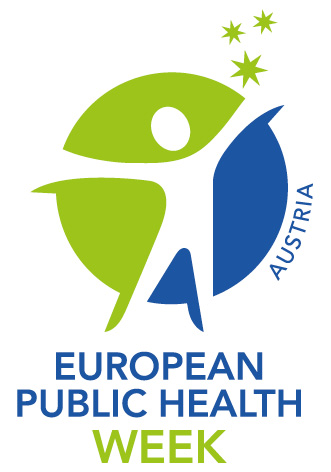


How can we build resilient pharmaceutical systems? In a webinar organised by the Pharmacoeconomics Department at the Austrian National Public Health Institute (GÖG), three speakers reported on best practice examples from European countries and cross-country collaborations. The webinar took place on 20 May 2022 and formed part of the European Public Health Week which aims to raise awareness about public health and promote collaboration among the public health community in Europe.
Resilience in health systems was introduced as the ability to prepare for, manage, and learn from shocks, by Sabine Vogler, Head of the Pharmacoeconomics Department at GÖG and Director of the WHO Collaborating Centre for Pharmaceutical Pricing and Reimbursement Policies. Adding to strategies for building up resilience in the wider health system, which have been the focus of much debate in recent years, several levers for strengthening resilience in the pharmaceutical system exist, including how medicines are procured, and how countries prepare for and deal with emerging, high-cost technologies.
Optimising public procurement of medicines, with a view to safeguarding the environment – examples from Denmark and the Nordic Pharmaceutical Forum
In the first presentation, Trine Ann Behnk, senior strategic advisor at Amgros, described how her institution is thinking strategically about the role of procurement of pharmaceuticals to build up resilience. Amgros, a procurement body for hospitals owned by and acting on behalf of the Danish regions, is currently developing a sustainability strategy that aims to lessen the impact of pharmaceuticals on the environment as part of the Danish government’s efforts to reduce CO2 emissions by 72% by 2030. Amgros has recently introduced environmental criteria into its national tenders for hospital medicines and has also applied such criteria for its joint Nordic tenders with Norway and Iceland (through the Nordic Pharmaceutical Forum). Key learnings from these tenders are that careful preparation of the inclusion of environmental criteria in procurement of pharmaceuticals is necessary (including dialogue with suppliers), and that, if done properly, having these criteria does not impact negatively on the number of suppliers competing in the market.
Beneluxa Initiative – working together for real improvement in patient access
Roisin Adams, Head of HTA Strategy and External Engagement at the National Centre Pharmacoeconomics (NCPE) in Ireland, introduced the Beneluxa Initiative, a cross-country collaboration between Belgium, the Netherlands, Luxembourg, Austria, and Ireland, which aims to ensure sustainable access to innovative medicine at affordable cost for all patients through activities in four core domains. Horizon scanning (now increasingly shifted to the spin-off International Horizon Scanning Initiative (IHSI), see below) is used to stay ahead of emerging technologies and to inform health technology assessment (HTA). The Beneluxa Initiative has published a horizon scanning report on pharmaceutical developments on Alzheimer’s Disease. HTA activities include joint HTA as well as considerations for re-using existing HTA reports across countries. A joint template for HTA submissions is being developed, as more joint HTAs are expected in the future. Pricing and reimbursement activities can include joint negotiations, which are informed by HTA. An example where this was conducted successfully for three countries (Belgium, Ireland and the Netherlands) was Zolgensma for the treatment of Spinal Muscular Atrophy (SMA). Finally, the initiative engages in information sharing activities. Statements on key issues around HTA (e.g. methodological considerations about costs to include in health economic evaluation of CAR-Ts), access to and pricing of high-cost medicines, and the need for rigorous evidence evaluation of Covid-19 pharmaceuticals have been issued on the initiative’s website and member states engage in regular exchange on hot topics through webinars.
Being prepared: Looking into the pipelines of new therapies – International Horizon Scanning Initiative
Marcus Guardian, General Manager of the International Horizon Scanning Initiative (IHSI) introduced horizon scanning as a process that aims at identifying, filtering, and prioritising new and emerging health technologies as the basis for informed decision-making. IHSI is based on the experiences of Beneluxa and other regional initiatives and aims to provide its member countries with robust data on emerging technologies. Data are collected through a combination of automated (including machine learning approaches) and human scanning and curating processes. Data are then made available in two forms: firstly, IHSI will shortly launch the first global database of upcoming pharmaceutical products, containing all products in phase I or later trials. Secondly, the organisation provides high-impact reports focusing on compounds where significant impact on health systems are expected. These reports will be published bi-annually in eight categories. IHSI expects to grow in the future and provide more member countries with information to help prepare their pharmaceutical systems.
Q&A and conclusions
In the Q&A session, speakers further discussed the potential impact of the upcoming EU HTA regulation on joint HTA activities by Beneluxa, links between Beneluxa and IHSI, and how information generated through collaborative work, such as horizon scanning and joint HTA, feeds through into subsequent activities, including pricing and reimbursement. Participants were also keen on learning more about the experience of the Nordic countries with environmental criteria in tenders (additional information on the subject is available online).
The webinar concluded with the speakers’ key messages on strengthening resilience in the pharmaceutical system. These highlighted the current period of transition in Europe which will be best navigated with a clear vision for the future and increased cross-country collaboration, transparency, and open dialogue between stakeholders.
*** The event took place in the framework of the European Public Health Week – Health throughout the life course ***
